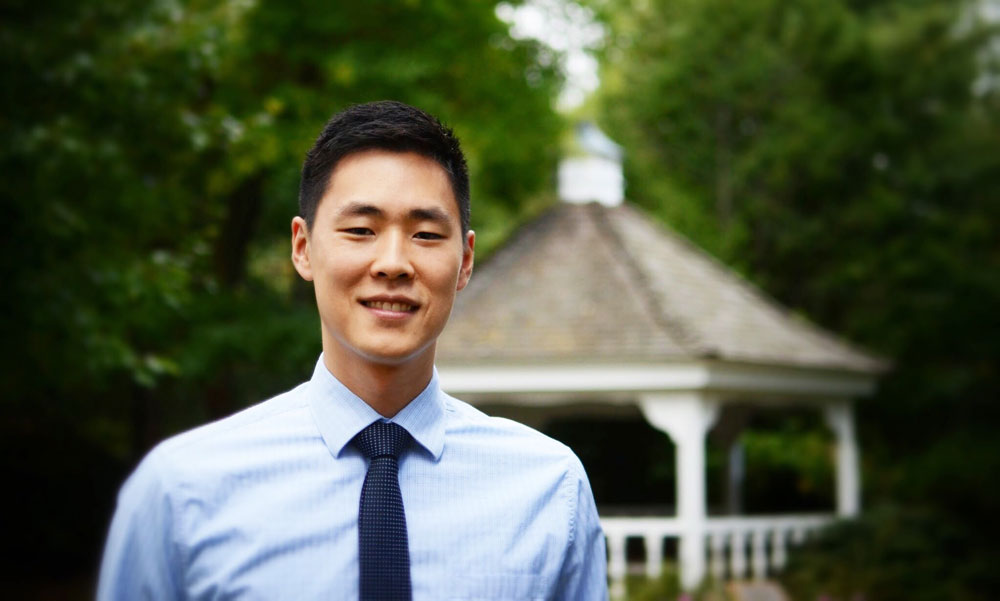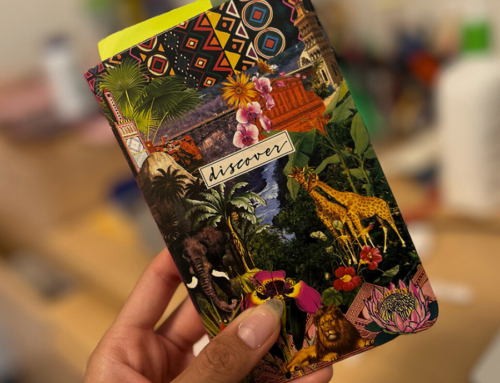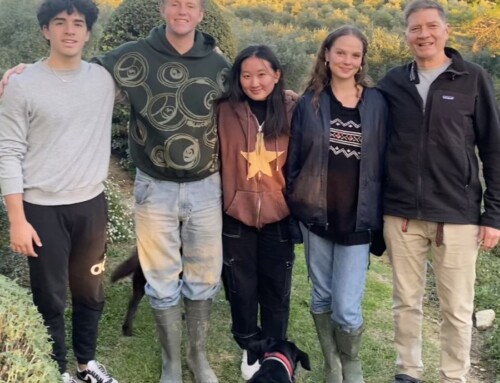Studying abroad is a priceless experience, but how do you convey that to employers in a job interview? These common interview questions are your chance. Beyond ‘it was awesome’ (which it was), here’s what you can say in an interview to show how study abroad makes you the ideal candidate.
1. How do you handle stress?
No matter how smooth your study abroad experience went, there’s zero chance you escaped feeling stressed. You conquered jet-lag, selected courses on time using an unfamiliar registration system, and found local housing all while adjusting to a new time zone, study culture and language. These experiences show you can stay focused and calm under pressure—a fantastic work skill.
Sample interview response: Finals in America usually mean a written exam, so you can imagine my panic level when I found out I would be delivering my final exam orally in a foreign language to the head of the department. My prep strategy was to stand and read my textbooks out loud every day so that I’d be comfortable speaking formally on my feet. I turned a very stressful situation into something manageable, and that’s the approach I’ll take to handling stressful situations here.

2. Can you quickly adjust to change?
Whether you lived in a dorm, an apartment or a homestay, you learned to live with complete strangers in an environment where you were the outsider. You navigated different transportation systems, honed your language skills, and adapted to new ways of doing almost everything. No one likes to work with inflexible people, so play up your adaptability.
Sample interview response: On my study abroad program I lived first with a local homestay family, then moved across the city into an apartment with roommates from Australia and South Africa. I had to pay close attention to the different cultural nuances and I learned to adapt my behavior and language. I think these skills will help me learn the systems and culture quickly here.
3. How do you solve problems?
From the minute you landed in your host country, you were exposed to interesting problems: from where to buy groceries and get your laundry done to getting the right internship for your career goals. You had to master creative approaches to solving those problems. Problem solvers are valuable employees because they can easily see and make connections between contrasting ideas.
Sample interview response: While studying abroad, we didn’t always have hot water for showers, so I ran in the morning to make a cool shower bearable. Pretty soon other students were running with me in the mornings. I like to take a creative approach to solving problems and enjoy seeing it catch on.

4. How do you handle conflict?
Everyday interactions abroad put you face to face with unfamiliar expectations, beliefs and customs. You learned to recognize those individual moments, manage your reactions and adjust your approach to fit the people and the situation. Those who have studied abroad have an easier time working with staff from varied backgrounds and navigating disagreements.
Sample interview response: In my internship abroad, I brought a sense of respect and cooperation into every interaction because I knew that it is considered unacceptable to express strong emotion in the workplace; these are signs of weakness. Instead, my ability to stay calm and composed radiated confidence. I think that staying respectful and cooperative is critical when adjusting to any new culture. That’s the approach I’ll take.
Studying abroad in Hong Kong made me realize not only how large and competitive the world is, but also that I was prepared to meet those challenges. It inspired me to make a positive impact in the world.
Tiffany Tai, UC Riverside
University of Hong Kong

5. Where do you see yourself in five years?
Before you studied abroad, you knew there would be long-term benefits. You were thinking ahead. You were willing to accept some discomfort, a little of the unknown, and a few surprises along the way to snag the ultimate reward. Employers love to know that the people they hire can see the big picture.
Sample interview response: Deciding to study abroad took a lot of thought and planning. I had to work to make sure my classes abroad fit my academic plan and my career goals, but I knew the benefits would be worth it. I see working here as a continuation of that growth with interesting projects and smart people I can learn from. That’s a big reason why I’d like to build a career here.
Bonus! If you’re curious about how to discuss your study abroad experience during interviews, highlight study abroad in applications, or identify new skills to add to your resume, UCEAP’s online Navigating Reentry course can help. It’s a private and pressure-free way to reflect on your experience and get the most out of it. Log into UCEAP learn with your campus credentials and click Reentry to get started.
More interview tips
The truth is, the experience you gained while studying abroad can play a role in just about any interview response and will impact you professionally. As you prepare for your next interview, think about how your time abroad can be helpful for employers. Consider:
- The challenges you faced that can help demonstrate your character, strengths and ingenuity.
- Interactions you had with professors, classmates, roommates or locals abroad that can help them get to know your personality, how you relate to others and communicate with a diverse group of people.
- How study abroad was part of your life and career goals and what steps you took to meet those goals.
- How your time abroad has shaped your perceptions and caused you to develop a greater sense of your place, including within an organization or company.
- What you learned on your internship, in your volunteer work or in class that can show your skills and knowledge.
- How your confidence in your ability to be flexible and face challenges has improved due to the experiences you had while abroad.
UCEAP Recommends
UCEAP’s free online Navigating Reentry course is a private and pressure-free way to gain tips and techniques to communicate professionally about study abroad. The five self-paced micro modules have built-in reflection activities that help you to:
- Confidently share your study abroad skills and stories in professional and personal contexts.
- Explore study abroad-specific tips from campus career advisors on leveraging the experience professionally and integrating it into future pathways.
- Identify the transferable skills you gained that employers are looking for.
Get ahead of the game and log into UCEAP learn with your active UC campus credentials, then click Reentry to get started.
For more post-study abroad career tips, see Lead like a boss! Job success after study abroad.







Leave A Comment